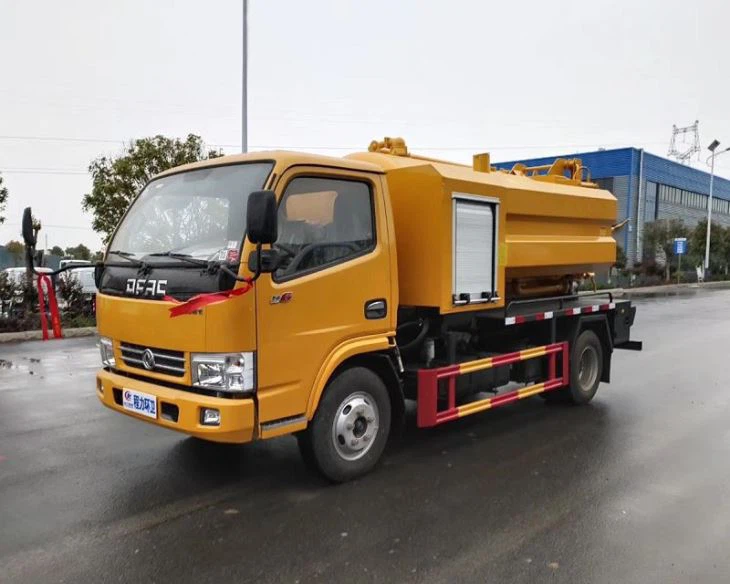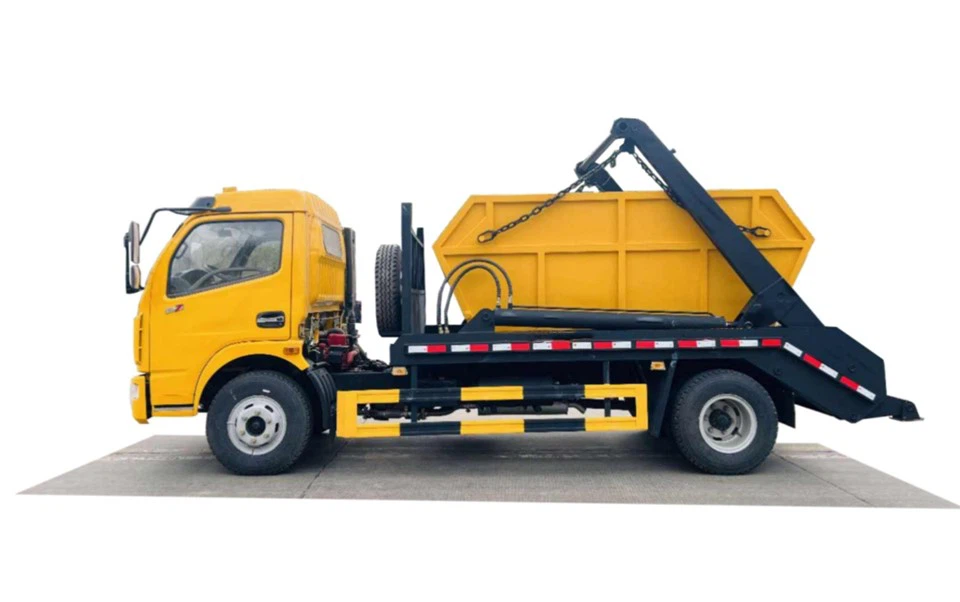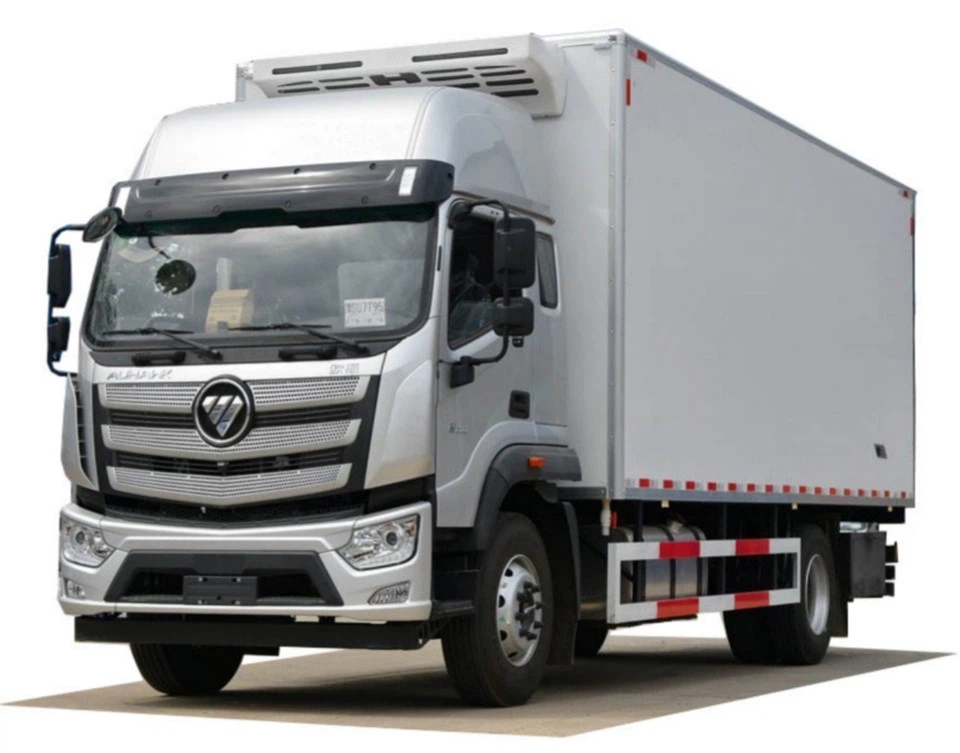Understanding Freezer Trucks: Comprehensive Guide to Refrigerated Transportation

In the modern transportation and logistics industry, freezer trucks are essential for the safe and effective transportation of temperature-sensitive goods. This comprehensive guide explores everything you need to know about freezer trucks, from their functionality and features to their benefits, maintenance tips, and FAQs.

Table of Contents
- What is a Freezer Truck?
- Types of Freezer Trucks
- How Do Freezer Trucks Work?
- Benefits of Using Freezer Trucks
- Maintenance of Freezer Trucks
- Cost Considerations
- Choosing the Right Freezer Truck
- Case Studies: Effective Use of Freezer Trucks
- Common Misconceptions About Freezer Trucks
- Frequently Asked Questions
What is a Freezer Truck?
A freezer truck is a specialized vehicle equipped with a cooling system designed to keep perishable goods at controlled temperatures during transportation. These trucks maintain a temperature below freezing to preserve products like frozen food, pharmaceuticals, and other items that require cold storage. The key features of freezer trucks include insulated cargo areas and reliable refrigeration units that ensure goods remain in optimal condition.
Types of Freezer Trucks
1. Light-Duty Freezer Trucks
Light-duty freezer trucks are typically used for short-distance deliveries. They are smaller in size and ideal for transporting smaller quantities of frozen goods.
2. Medium-Duty Freezer Trucks
Medium-duty freezer trucks offer a balance between size and capacity, making them suitable for local distribution of frozen products.
3. Heavy-Duty Freezer Trucks
Heavy-duty freezer trucks are designed for long-haul transportation. They have larger capacities and are equipped with powerful refrigeration units to handle temperature-sensitive goods over extended distances.
How Do Freezer Trucks Work?
Freezer trucks operate using advanced refrigeration systems that utilize refrigerants to cool the air within the cargo area. Here’s a detailed look at how they function:
1. Insulation
The cargo area of a freezer truck is well-insulated to minimize heat transfer from the external environment, ensuring that the cold air remains inside the truck.
2. Refrigeration Unit
The refrigeration unit can be powered by diesel, electricity, or gas, depending on the type of truck. It circulates refrigerant through evaporator and condenser coils, absorbing heat from the cargo area and maintaining a low temperature.
3. Temperature Control
Most modern freezer trucks come with digital temperature control systems, allowing operators to set specific temperatures and monitor conditions in real-time.

Benefits of Using Freezer Trucks
1. Preservation of Quality
Freezer trucks maintain the freshness and quality of perishable items, preventing spoilage and waste.
2. Versatility
These trucks can transport a wide variety of goods, including food products, pharmaceuticals, and chemicals, making them incredibly versatile.
3. Increased Safety
By ensuring the safe transport of temperature-sensitive items, freezer trucks help businesses comply with health regulations, reducing liability issues.
4. Enhanced Delivery Options
Businesses can expand their service areas and offer delivery of frozen items without worrying about product degradation.
Maintenance of Freezer Trucks
Regular maintenance of freezer trucks is essential to ensure their optimal performance. Here are some key maintenance tips:
1. Regular Checks
Conduct regular checks of the refrigeration unit, including the compressor and coolant levels, to ensure everything functions properly.
2. Cleaning

Keep the cargo area clean to avoid contamination and unpleasant odors. Regularly clean the refrigeration components as well.
3. Temperature Monitoring
Use temperature monitoring systems to keep track of conditions inside the truck and act quickly if any discrepancies arise.
Cost Considerations
When considering investing in or renting a freezer truck, take into account the following costs:
1. Purchase or Rental Costs
Determine whether to purchase or rent based on frequency of use. Rentals may be cost-effective for short-term needs, while purchases might be preferable for long-term operations.
2. Fuel Costs
The type of refrigeration system and vehicle will impact fuel consumption; consider these costs in your budget.
3. Maintenance Costs
Regular maintenance can incur costs, so it’s essential to budget appropriately to ensure the longevity of the vehicle.
Choosing the Right Freezer Truck
Selecting the appropriate freezer truck involves assessing your needs. Consider the following factors:
1. Capacity
Assess the volume of goods you need to transport to choose a truck with sufficient capacity.
2. Temperature Range
Different products may require different temperature settings. Decide what temperature ranges you need for your specific operations.
3. Route Considerations
Consider the routes you’ll be traveling. A more robust truck might be necessary for long distances, while smaller trucks may suffice for local transport.
Case Studies: Effective Use of Freezer Trucks
Examining real-world applications of freezer trucks can offer valuable insights. Here are a couple of examples:
1. Grocery Stores
Many grocery chains utilize freezer trucks to distribute frozen foods from their central warehouses to local stores, ensuring products remain frozen during transit.
2. Pharmaceutical Companies
Pharmaceutical companies rely on freezer trucks to transport temperature-sensitive medications, adhering to strict health regulations to preserve product integrity.
Common Misconceptions About Freezer Trucks
1. They Only Carry Food
While freezer trucks are commonly associated with food transport, they also carry pharmaceuticals, chemicals, and other temperature-sensitive products.
2. They Are Expensive to Operate
While initial costs can be high, proper maintenance and fuel management can make operating freezer trucks cost-effective over time.
3. All Freezer Trucks Are the Same
Freezer trucks come in various sizes and capacities, and their specifications should be tailored to specific transportation needs.
Frequently Asked Questions
1. How long can food be stored in a freezer truck?
The storage duration depends on the type of food and temperature settings, but typically, food can remain fresh for extended periods when kept at proper temperatures.
2. What temperature do freezer trucks maintain?
Freezer trucks typically maintain temperatures between -18°C (0°F) to -30°C (-22°F), depending on the goods being transported.
3. Can I rent a freezer truck for a short period?
Yes, many companies offer rental options for freezer trucks, making it feasible for short-term transport needs.
4. What are the costs associated with owning a freezer truck?
Costs include purchase price, insurance, maintenance, fuel, and potential repairs. Careful financial planning is crucial.
5. Are there specific regulations for transporting food in freezer trucks?
Yes, various regulations exist to ensure the safety and quality of transported food. Familiarizing yourself with local and national regulations is essential.
6. How can I ensure my freezer truck is running efficiently?
Regular maintenance, timely inspections, and using modern monitoring equipment can help ensure your freezer truck operates efficiently.
